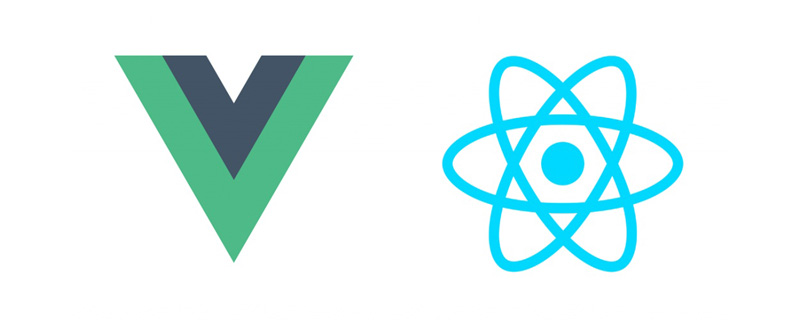This article mainly introduces the example code of Vue's event-responsive progress bar component. It is very good and has reference value. Friends who need it can refer to it
Write it in front
I found a lot of vue progress bar components, but none of them include drag and click events. The input range natively contains input and change events, but if you make a progress bar directly based on the input range, the style Some parts require a lot of adjustments and compatibility processing. Even if it is done, if the appearance needs to be modified in the future, it will be a lot of trouble.
Based on the above two reasons, I made a program that can respond to input and change events (that is, one is to drag the progress bar somewhere, and the other is to click on a certain position of the progress bar to change its value to that position) The Vue component implemented by p not only meets the demand for progress bar events, but also brings the benefit of convenient style modification if the requirements change.
Rendering

The above are some of the effects that can be achieved by using this component. They can respond to both input and change events.
First is the template part
Look at the picture above carefully. How to construct the HTML template still needs some consideration. I also changed it several times and finally settled on this one. structure. First of all, there is a layer of outsourcing that I won’t talk about. Then there is a p with class = 'progress' under the outsourcing p. The p inside this p means that the progress bar has crossed the part (class="left"). The p with class="left" also contains a p indicating that The slider ball that we can drag.
Let’s talk about the benefits. With such a structure and the style created, when checking the elements on the page, you can clearly see that each p overlaps with the part displayed on the page.
If your progress bar represents p of the entire length, p represents the left half, and p represents the slider, it is not a nested structure like mine, but a sibling node relationship, you have to use styles to do relative Position and move the last two sibling nodes up, so that when the element is checked, the boxes of other components below the progress bar will penetrate into the area of the progress bar. Although the user will not check the elements, it will not be convenient for programmers to observe by themselves after a long time, right?
In other words, we all hope that the elements expressed by the HTML structure and the placeholder of each element displayed when checking the element are consistent. This can also be regarded as an evaluation indicator of whether your HTML structure is reasonably constructed.
<template>
<p class="progress-wrapper" :style="wrapStyle">
<p class="progress" @mousedown="mousedownHandler" @mouseover="mouseoverHandler"
@mousemove="mousemoveHandler" @mouseup="mouseupHandler" :style="pBarStyle">
<p class="left" :style="leftStyle">
<p class="ball" :style="ballStyle"></p>
</p>
<slot></slot>
</p>
</p>
</template>js part
For students who now need to use this progress bar with events, take a look at this part to help you modify and improve it. it.
For students who want to try this component first, you can skip reading this part. When you find that the function of this component is insufficient, it will not be too late to look at this part of the code.
export default {
name: 'ProgressBar',
props: {
leftBg: String,
bgc: String,
ballBgc: String,
height: String,
width: String,
max: {
type: Number,
default: 100,
},
min: {
type: Number,
default: 0,
},
value: {
type: Number,
default: 36,
},
},
data: function () {
return {
pValue: this.value,
pMax: this.max,
pMin: this.min,
wrapStyle: {
'width': this.width,
},
pBarStyle: {
'backgroundColor': this.bgc,
'height': this.height,
},
leftStyle: {
'width': this.progressPercent + '%',
'background': this.leftBg,
'height': this.height,
},
ballStyle: {
'backgroundColor': this.ballBgc,
'height': this.height,
'width': this.height,
'borderRadius': parseInt(this.height) / 2 + 'px',
'right': - parseInt(this.height) / 2 + 'px',
},
// 标记是否按下鼠标
isMouseDownOnBall: false,
}
},
computed: {
progressPercent(){
return (this.pValue - this.pMin) / (this.pMax - this.pMin) * 100;
},
progressElement(){
return this.$el.getElementsByClassName('progress')[0];
},
},
methods: {
mousedownHandler(e){
if(e.which === 1){
this.isMouseDownOnBall = true;
}
},
mousemoveHandler(e){
if(this.isMouseDownOnBall === true){
// 修改进度条本身
let decimal = (e.clientX - this.$el.offsetLeft) / this.progressElement.clientWidth;
let percent = decimal * 100;
this.leftStyle.width = percent + '%';
// 修改value
this.pValue = this.pMin + decimal * (this.pMax - this.pMin);
this.$emit('pbar-drag', this.pValue, percent);
}
},
mouseupHandler(e){
if(this.isMouseDownOnBall){
// 修改进度条本身
let decimal = (e.clientX - this.$el.offsetLeft) / this.progressElement.clientWidth;
let percent = decimal * 100;
this.leftStyle.width = percent + '%';
// 修改value
this.pValue = this.pMin + decimal * (this.pMax - this.pMin);
this.$emit('pbar-seek', this.pValue, percent);
this.isMouseDownOnBall = false;
}
},
mouseoverHandler(e){
// 没有按左键进入进度条
if(e.which === 0){
this.isMouseDownOnBall = false;
}
}
},
watch: {
max(cur, old){
this.pMax = cur;
},
min(cur, old){
this.pMin = cur;
},
value(cur, old){
this.pValue = cur;
},
progressPercent(cur, old){
this.leftStyle.width = cur + '%';
}
},
mounted(){
// 数据验证
if(this.max < this.min){
console.error("max can't less than min !");
}
// 初始百分比
this.leftStyle.width = (this.pValue - this.pMin) / (this.pMax - this.pMin) * 100 + '%';
},
}Installation and use
Address
Code library address is installed on GitHub
, use
npm install vue-draggable-progressbar --save import progressBar from 'vue-draggable-progressbar'
Use case:
<progress-bar ref="aa"></progress-bar>
<progress-bar width="40%" leftBg="greenyellow" bgc="#ccc" ballBgc="red"></progress-bar>
<progress-bar width="60%" leftBg="linear-gradient(to right, yellow, pink)" bgc="#ccc" ballBgc="red"></progress-bar>
<progress-bar width="80%" leftBg="yellow" bgc="#ccc" ballBgc="red" height="30px"></progress-bar>
<progress-bar leftBg="greenyellow" bgc="#ccc" ballBgc="rgba(255,0,0,0.2)" height="40px"></progress-bar>
<progress-bar leftBg="greenyellow" bgc="#ccc" ballBgc="red" :max="max" :value="value" :min="min"
@pbar-drag="drag" @pbar-seek="seek"></progress-bar>Component props
leftBg: Progress The bar has crossed part of the background color
bgc: The progress bar has not crossed part of the background color
ballBgc: Slider background color
width: the percentage of the width of the parent component of the progress bar, pass the percentage value
height: the height of the progress bar, pass the pixel value
max: Maximum value of the progress bar
min: Minimum value
value: Current value
Event
pbar-drag: Triggered when dragging the progress bar, returning value and percentage value
pbar-drag: Triggered when a certain position of the progress bar is clicked, and the value and percentage value are returned.
The above is what I compiled for everyone. Yes, I hope it will be helpful to everyone in the future.
Related articles:
How to use Dom elements in jQuery?
What are the commonly used array functions in js?
About how to use datepicker in vue2.0
The above is the detailed content of How to implement event-responsive progress bar component in Vue. For more information, please follow other related articles on the PHP Chinese website!
 vue中props可以传递函数吗Jun 16, 2022 am 10:39 AM
vue中props可以传递函数吗Jun 16, 2022 am 10:39 AMvue中props可以传递函数;vue中可以将字符串、数组、数字和对象作为props传递,props主要用于组件的传值,目的为了接收外面传过来的数据,语法为“export default {methods: {myFunction() {// ...}}};”。
 聊聊vue指令中的修饰符,常用事件修饰符总结May 09, 2022 am 11:07 AM
聊聊vue指令中的修饰符,常用事件修饰符总结May 09, 2022 am 11:07 AM本篇文章带大家聊聊vue指令中的修饰符,对比一下vue中的指令修饰符和dom事件中的event对象,介绍一下常用的事件修饰符,希望对大家有所帮助!
 如何覆盖组件库样式?React和Vue项目的解决方法浅析May 16, 2022 am 11:15 AM
如何覆盖组件库样式?React和Vue项目的解决方法浅析May 16, 2022 am 11:15 AM如何覆盖组件库样式?下面本篇文章给大家介绍一下React和Vue项目中优雅地覆盖组件库样式的方法,希望对大家有所帮助!
 react与vue的虚拟dom有什么区别Apr 22, 2022 am 11:11 AM
react与vue的虚拟dom有什么区别Apr 22, 2022 am 11:11 AMreact与vue的虚拟dom没有区别;react和vue的虚拟dom都是用js对象来模拟真实DOM,用虚拟DOM的diff来最小化更新真实DOM,可以减小不必要的性能损耗,按颗粒度分为不同的类型比较同层级dom节点,进行增、删、移的操作。


Hot AI Tools

Undresser.AI Undress
AI-powered app for creating realistic nude photos

AI Clothes Remover
Online AI tool for removing clothes from photos.

Undress AI Tool
Undress images for free

Clothoff.io
AI clothes remover

AI Hentai Generator
Generate AI Hentai for free.

Hot Article

Hot Tools

EditPlus Chinese cracked version
Small size, syntax highlighting, does not support code prompt function

Safe Exam Browser
Safe Exam Browser is a secure browser environment for taking online exams securely. This software turns any computer into a secure workstation. It controls access to any utility and prevents students from using unauthorized resources.

Dreamweaver CS6
Visual web development tools

SublimeText3 Linux new version
SublimeText3 Linux latest version

mPDF
mPDF is a PHP library that can generate PDF files from UTF-8 encoded HTML. The original author, Ian Back, wrote mPDF to output PDF files "on the fly" from his website and handle different languages. It is slower than original scripts like HTML2FPDF and produces larger files when using Unicode fonts, but supports CSS styles etc. and has a lot of enhancements. Supports almost all languages, including RTL (Arabic and Hebrew) and CJK (Chinese, Japanese and Korean). Supports nested block-level elements (such as P, DIV),










